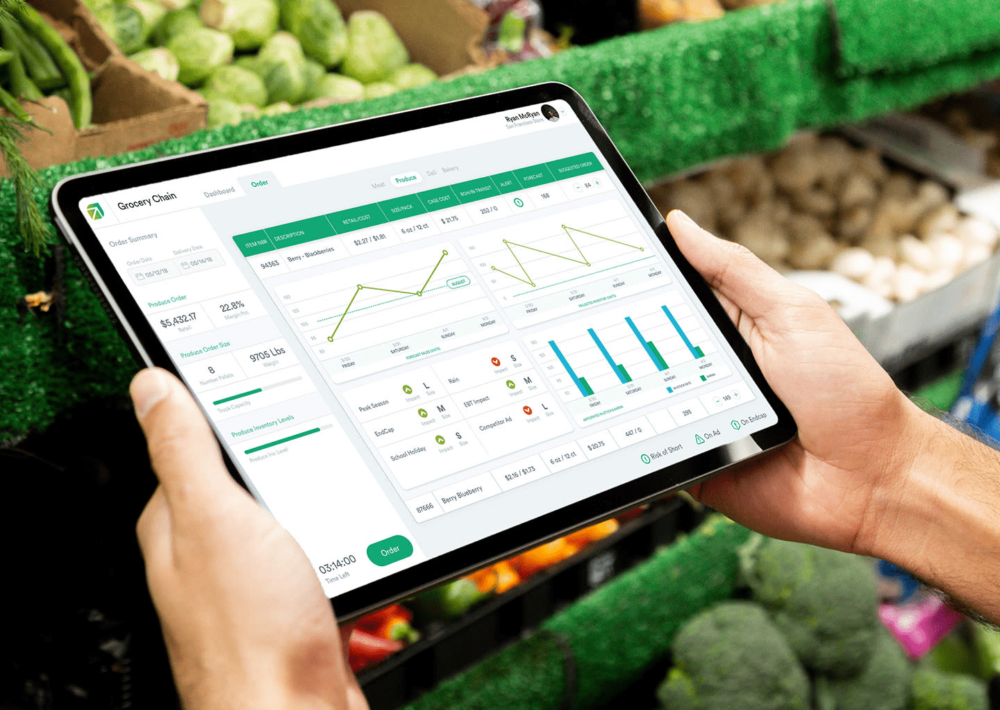Figuring out the right amount of stock to order is one of the most stressful aspects of the cutthroat grocery business. Order too much and you will eat the cost. Order too little and you’ll send customers to the supermarket down the street.
That’s exactly the stress point that San Francisco startup Afresh is looking to solve. And investors seem to be pleased with how it’s doing.
“We hit some milestones internally as a company on traction and adding customers that had our [investors] so excited about the progress that we woke up the morning after a board meeting to a few folks offering to lead additional rounds of capital,” Matt Schwartz, Afresh CEO, tells AFN.
The San Francisco startup recently raised a $13 million Series A extension led by Food Retail Ventures. Existing investors Innovation Endeavors, Maersk Growth, and Baseline Ventures also participated.
It also added grocery industry veteran James McCann — CEO of Food Retail Ventures and former CEO of the US unit of Dutch grocery chain Ahold Delhaize — to its board of directors.
At the same time, Afresh announced US supermarket chain WinCo Foods as a new client. It will roll out the startup’s software in all its 129 locations with the goal of reducing food waste and optimizing ordering practices.
“The challenge of ordering and getting the right number of products on the shelf has been this kind of perennial challenge in the industry for decades,” Schwartz says.
“With the addition of e-commerce, you need to make sure that not only is the product there, but you have to understand how much of every item there is. We can help with both of those within fresh food.”
The primary way that grocers have been trying to tackle this without technology is by putting their most talented employees on the task, he adds. As a result, fresh food is typically the hardest department to manage, with talent retention a problem.
Afresh claims that on average its technology can mitigate food waste by about 25% while adding 2% to 4% growth in top-line revenue and increasing produce operating margins by at least 40%. The platform can also save employees about one to two hours per week, which they can allocate to other tasks like customer service.
With the new financing, Afresh hopes to expand across more aspects of the fresh grocery space as well as store operations and merchandising. The startup doubled its headcount between 2019 and 2020, and hopes to double it again during 2021 with a focus on hiring for sales and commercialization roles.
Southeast Asian ride-hailing app Grab has made a major e-grocery move with the opening of its first ‘dark store.’ Find out more here
Covid-19 has been an accelerant for many food-related businesses when it comes to technology adoption. Although there are many different tech tools aimed at the supermarket sector, some grocers were slow on the uptake even as consumers showed increasing interest in online shopping.
“The pandemic has underscored the criticality of technology for grocers and we found that the value propositions that we have are more important now than ever,” Schwartz says.
“Before the pandemic, grocers would typically do half of their business on the weekend. The demand patterns really shifted and the weekdays became a lot bigger.”
Afresh says its system has helped its clients adjust as quickly as possible to these changes in demand. It was designed to tolerate occasional shocks that disrupt shipping routes, like storms – or extremes of heat, cold, and wet weather that can shorten the shelf life of some fresh produce.
Moving forward, the startup has lofty goals for the wider grocery industry.
“We think that we will have a profound impact on our customer’s profitability, on mitigating climate change, and increasing access to fresh food by making those markets more efficient,” Schwartz says.
“We are seeing a really amazing impact in terms of reducing and preventing food waste. We want that number to be in the hundreds of billions of pounds of food waste reduced per year.”




